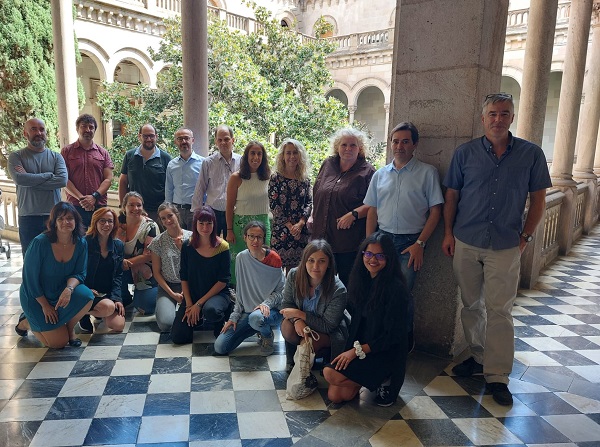4-Deep Brain Reconstruction (4-DBR): an innovative European project on brain regeneration for the treatment of neurodegenerative disorders

Regenerative medicine offers an opportunity to treat patients with neurodegenerative disorders by implanting healthy tissue into damaged areas of the brain. However, the complexity of the human brain faces a major challenge for progress in this field. In this context, the 4-Deep Brain Reconstruction Consortium (4-DBR), coordinated by the August Pi i Sunyer Biomedical Research Institute (IDIBAPS), aims to achieve a significant progress using the latest technologies, as well as to enhance its knowledge and experience in molecular biology, bioprinting and optogenetics. The 4-DBR Consortium has received the Pathfinder grant from the European Innovation Council (EIC), with an amount of €2,987,776 distributed over three years, which will give it a new technological approach to the recovery of brain damage caused by neurological disorders.

Regenerative medicine offers an opportunity to treat patients with neurodegenerative disorders by implanting healthy tissue into damaged areas of the brain. However, the complexity of the human brain faces a major challenge for progress in this field. In this context, the 4-Deep Brain Reconstruction Consortium (4-DBR), coordinated by the August Pi i Sunyer Biomedical Research Institute (IDIBAPS), aims to achieve a significant progress using the latest technologies, as well as to enhance its knowledge and experience in molecular biology, bioprinting and optogenetics. The 4-DBR Consortium has received the Pathfinder grant from the European Innovation Council (EIC), with an amount of €2,987,776 distributed over three years, which will give it a new technological approach to the recovery of brain damage caused by neurological disorders.
The project, launched in September 2022, will develop a 4D mini-brain that mimics the complex cellular architecture and diversity of brain cells, integrated into a bioprintable structure. It will be carried out thanks to the collaboration of six outstanding research laboratories from the University of Barcelona and IDIBAPS (Spain), Poietis (France), Verigraft AB (Sweden), the Technical University of Denmark (DTU, Denmark) and San Raffaele Hospital (OSR, Italy). The six 4-DBR partners will put together their knowledge and expertise in complementary fields to work on each of the components of the reconstructed brains. The result will be the most complex and biologically similar brain structure developed to date. The consortium hopes that 4-DBR will give a new impetus to brain reconstruction, leading to a potentially life-changing therapy for many patients suffering from neurodegenerative disorders within 10 years.
The project is led by Josep M. Canals, lecturer from the Department of Biomedicine at the Faculty of Medicine and Health Sciences, member of the Institute of Neurosciences (UBNeuro) and director of the UB Centre for the Production and Validation of Advanced Therapies (Creatio). "This revolutionary approach will open new strategies to regenerate the brain for many neurodegenerative diseases that will increase the healthiness of patients affected by one of these devastating disorders", says Josep M. Canals, who is also a researcher at the IDIBAPS Pathophysiology and Treatment of Neurodegenerative Diseases group. As a proof of concept, the consortium will focus on the treatment of Huntington's disease, a single-gene disorder that is currently untreated.
The EIC Pathfinder Grants support the exploration of bold ideas for radically new technologies. These prestigious and highly competitive fellowships under the Horizon Europe programme aim to ensure that Europe continues to drive innovation and applaud the cutting-edge interdisciplinary scientific collaborations that underpin technological breakthroughs.
